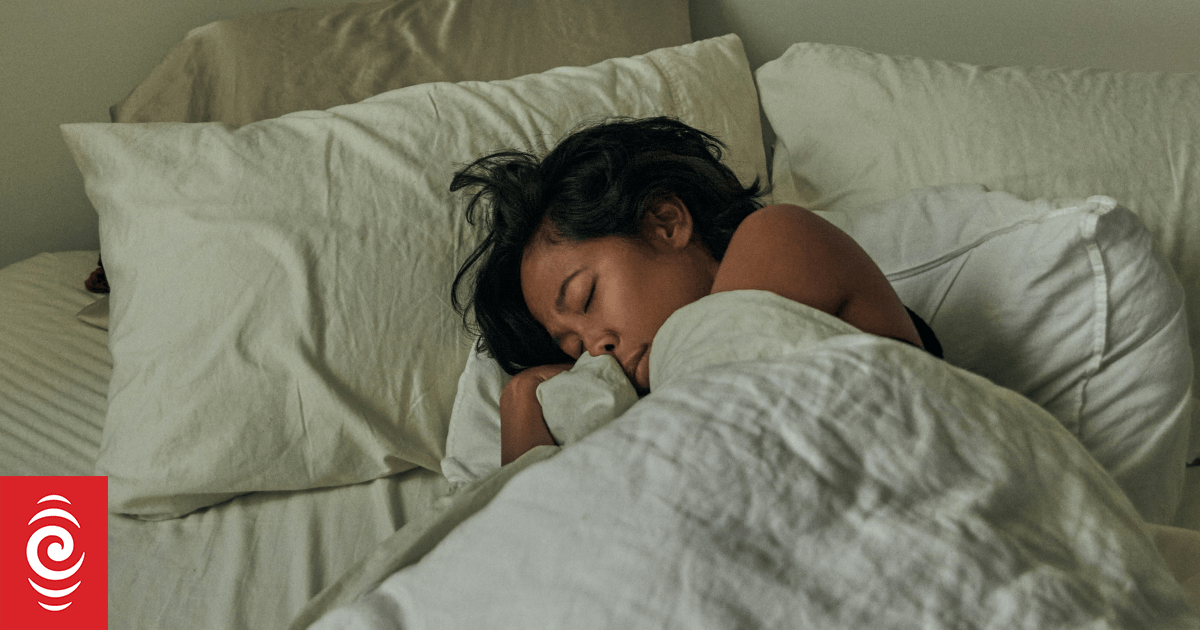World
Excessive Sleep: New Research Links Long Hours to Health Risks

The debate surrounding sleep has taken a new turn, with recent research suggesting that sleeping too much may be just as harmful as not sleeping enough. According to a review of data from 79 studies, those who sleep more than nine hours a night face a significantly increased risk of mortality compared to those who sleep between seven and eight hours. This information raises important questions about our understanding of sleep and its impact on health.
Sleep is widely recognized as a crucial component of overall well-being. The Sleep Health Foundation, Australia’s leading organization focused on sleep-related health issues, recommends that adults aim for between seven and nine hours of sleep each night. Insufficient sleep has long been linked to various health concerns, including cardiovascular disease, type 2 diabetes, and mental health disorders. While it’s clear that not getting enough sleep is detrimental, the implications of excessive sleep are becoming increasingly evident.
In the recent study, researchers discovered that individuals who sleep less than seven hours a night had a 14% higher risk of dying during the study period. Conversely, those who exceeded nine hours of sleep had a staggering 34% increased risk of mortality. This trend aligns with findings from previous research conducted in 2018, which indicated that sleep durations over nine hours are associated with a 14% increase in mortality risk.
The relationship between excessive sleep and health complications, such as depression, chronic pain, and metabolic disorders, has also been highlighted. However, it is crucial to understand that these studies identify a correlation rather than a direct cause-and-effect relationship. Many individuals who experience chronic health issues may require more sleep as their bodies attempt to recover. Their extended sleep patterns could be a symptom rather than a cause of poor health.
Various factors may contribute to the observed relationship between excessive sleep and health risks. People suffering from chronic conditions may find themselves sleeping longer due to fatigue or medication side effects. Furthermore, lifestyle factors such as obesity and smoking, which are known to impact health, can also influence sleep patterns. Therefore, it is essential to consider that excessive sleep might reflect underlying health issues, rather than being the root cause of those issues.
Another aspect to consider is the variability in sleep needs based on age and individual differences. Teenagers, for instance, may require more sleep, with recommendations suggesting eight to ten hours for optimal functioning. In contrast, while older adults may spend more time in bed, their sleep requirements generally remain the same as when they were younger. Most adults should aim for the recommended seven to nine hours of sleep to promote better health.
Quality of sleep is equally important as quantity. Consistent sleep patterns, along with high-quality sleep, play a critical role in maintaining health. Many adults in Australia struggle to meet the recommended sleep duration, prompting a need for strategies to improve sleep hygiene rather than worrying about excessive sleep.
To enhance sleep quality, individuals are encouraged to spend time outdoors during the day, maintain an active lifestyle, and establish a regular sleep schedule. Prior to bedtime, limiting screen time and engaging in relaxing activities can also contribute to a more restful night’s sleep. If individuals find themselves sleeping significantly longer than usual, it may indicate an underlying health issue. Consulting with a healthcare professional can provide further guidance on sleep concerns.
In summary, while the notion of excess sleep being harmful is gaining attention, it is essential to approach this subject with an understanding of the complexities involved. The ongoing research underscores the necessity of balanced sleep patterns and the importance of addressing any health issues that may disrupt sleep quality.
For more information on sleep health, resources are available through the Sleep Health Foundation. According to Charlotte Gupta, a Senior Postdoctoral Research Fellow at the Appleton Institute at CQUniversity Australia, and Gabrielle Rigney, a Senior Lecturer in Psychology at the same institution, improving our understanding of sleep can ultimately lead to better health outcomes for all.
-

 Sports2 months ago
Sports2 months agoNetball New Zealand Stands Down Dame Noeline Taurua for Series
-

 Entertainment2 months ago
Entertainment2 months agoTributes Pour In for Lachlan Rofe, Reality Star, Dead at 47
-

 Entertainment2 weeks ago
Entertainment2 weeks agoNew ‘Maverick’ Chaser Joins Beat the Chasers Season Finale
-

 Sports2 months ago
Sports2 months agoSilver Ferns Legend Laura Langman Criticizes Team’s Attitude
-

 Politics3 weeks ago
Politics3 weeks agoNetball NZ Calls for Respect Amid Dame Taurua’s Standoff
-

 Entertainment2 months ago
Entertainment2 months agoKhloe Kardashian Embraces Innovative Stem Cell Therapy in Mexico
-

 Sports2 months ago
Sports2 months agoGaël Monfils Set to Defend ASB Classic Title in January 2026
-

 World3 months ago
World3 months agoPolice Arrest Multiple Individuals During Funeral for Zain Taikato-Fox
-

 Entertainment4 weeks ago
Entertainment4 weeks agoTyson Fury’s Daughter Venezuela Gets Engaged at Birthday Bash
-

 Sports4 weeks ago
Sports4 weeks agoHeather McMahan Steps Down as Ryder Cup Host After Controversy
-

 Entertainment4 weeks ago
Entertainment4 weeks agoTyson Fury’s Daughter Venezuela Gets Engaged at Birthday Bash
-

 World4 weeks ago
World4 weeks agoNew Zealand Firefighters Plan Strike on October 17 Over Pay Disputes



















